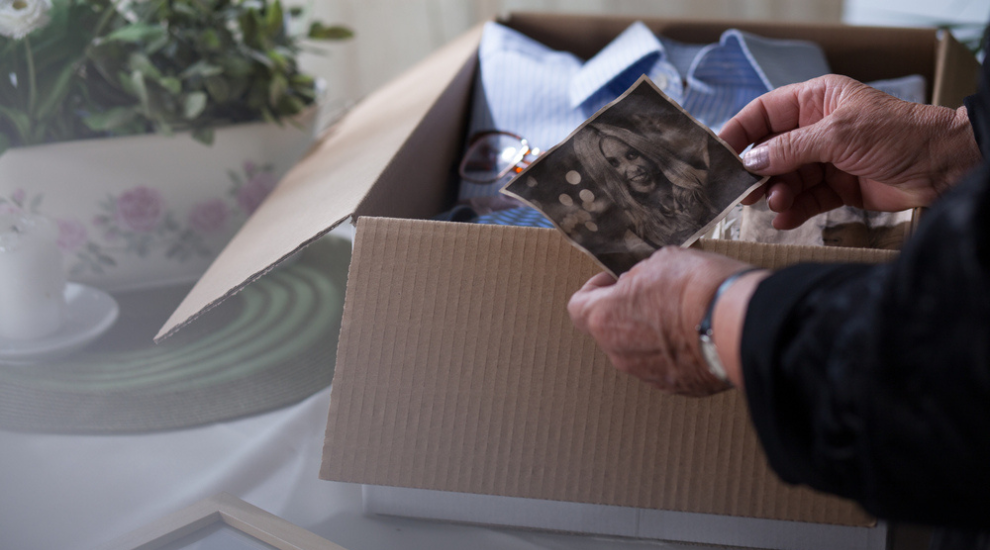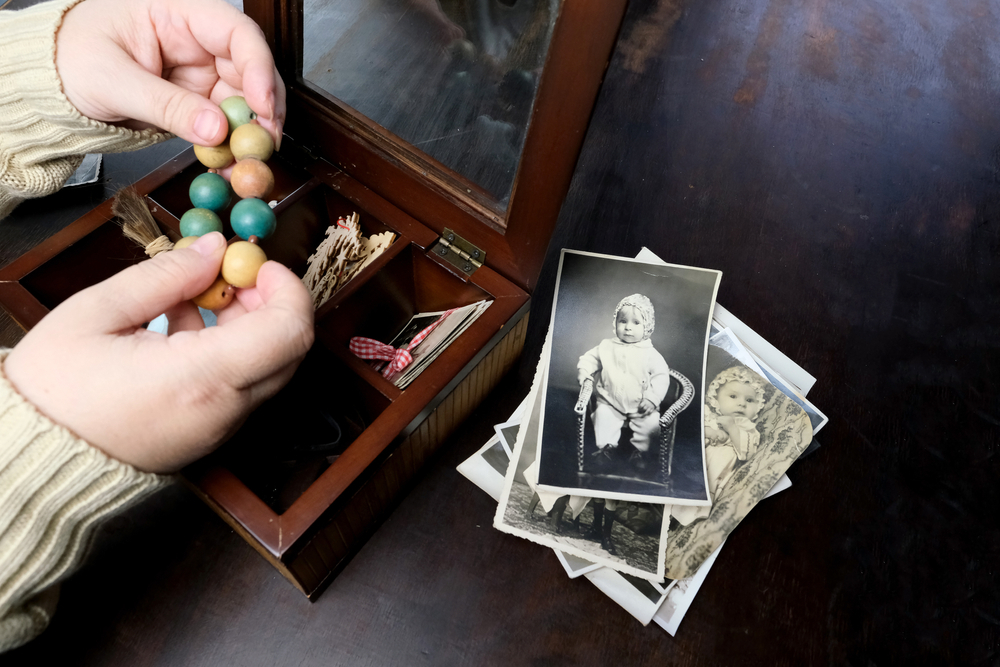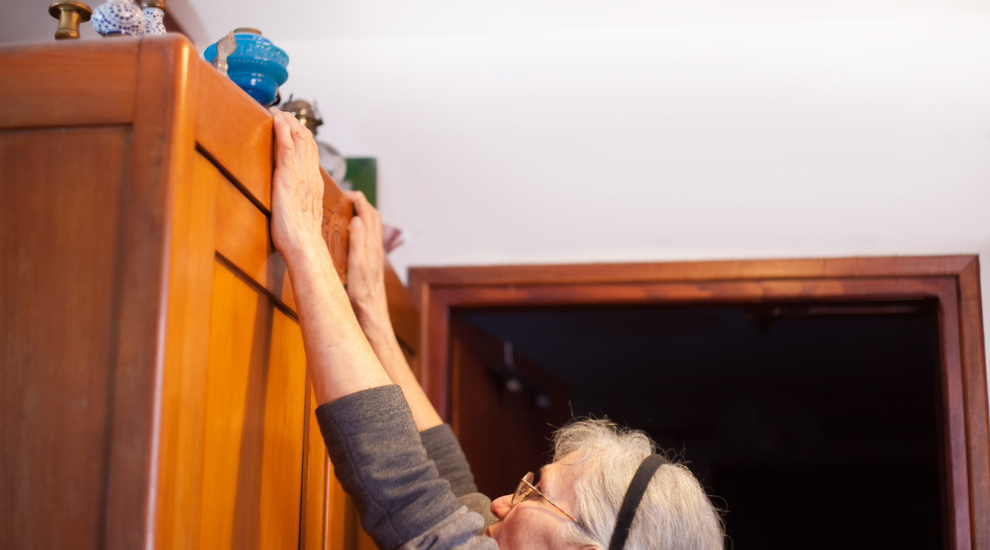
Jul 18, 2024

We’ve all been touched by the death of a loved one, but we appreciate the last thing you’re interested in is emotional advice from a skip bin provider on deceased estate clean-ups. This guide aims to provide clear steps for and give you a list of everything you need to do to clear out a deceased estate or loved one’s home.
Once you’ve decided when you’re going to start your deceased estate clean, book our rubbish removal skip bins. We’ll make sure they’re there on time and for as long as you need them.
First, the very basics. You’ll need to gather all the cleaning and sorting supplies you need.
As for the documents, remember that your loved one’s deceased estate is likely to be filled with important personal and financial documents that may be important for the deceased estate, and these documents will need to be saved. These documents may not have been stored safely or organised clearly, so make sure you comb through their home and save these critical documents before you start your deceased estate clean and throw things away.
Prepare boxes, packing tape, markers, garbage bags, and cleaning products. Consider having a first aid kit handy. Having cleaning supplies ready when beginning your deceased estate clean ensures you can start immediately and handle any unexpected messes efficiently. Don't forget to book a skip bin for easy waste disposal.
Gather all necessary legal and personal documents, such as wills, insurance papers, and property deeds, in a safe and accessible place. These documents will be essential for managing legal and financial aspects, so it's crucial to keep them organised and secure.
This isn’t a typical spring clean; it’ll be an emotional process, and taking your time to grieve is more important than maximising efficiency. When planning how to clean out a deceased estate, be sure to set yourself a generous timeline. Set realistic goals for yourself and for the deceased estate clearance process. If doing it with your family, coordinate with family members to divide tasks.
Set a timeline for clearing the deceased estate house. A deceased estate clean takes time, so set a realistic timeline for the entire process. It’s crucial to give yourself enough time without feeling rushed while cleaning the home of a loved one. Plan for contingencies and allow extra time for particularly emotional tasks.
Break down the cleanout into manageable tasks and assign deadlines. Prioritise tasks that need immediate attention. Create a checklist to track progress and keep everyone involved on the same page.
Organising the belongings of a deceased estate can be overwhelming, but categorising items can simplify the process. You will need boxes or bins for each category, labels, and markers to keep things organised. This will help you decide what to keep, donate, sell, or discard efficiently and respectfully.
When cleaning, identify items in the deceased estate that carry sentimental value or those needed for legal purposes. Store them in a safe place. Use clear labels and detailed inventory lists to keep track of these items.
Usable items that can benefit others. Contact local charities for pickup or drop-off points. Research organisations that align with the deceased's values and preferences.
Valuables and collectibles can be sold through estate sales, online marketplaces, or auctions. Research the best platforms to maximise value. Take high-quality photos and provide detailed descriptions to attract buyers. Consider deceased estate house clearances for selling items.
At the end of your deceased estate clean, you may be left with items that are damaged or no longer useful. Book WM Waste’s rubbish removal service and we’ll take it away. Ensure proper disposal of recyclable and hazardous materials. Items from deceased estates should be recycled whenever possible.
Valuables and sentimental items often carry significant emotional and monetary value. Handling these items with care is crucial. You will need secure storage boxes, labels, and possibly a professional appraiser to ensure that valuables are properly assessed and preserved.
Secure valuable items like jewellery, artwork, and antiques. Consider getting them appraised to understand their worth. Consult professional appraisers for accurate valuations before considering selling or booking a deceased estate house clearances auction
Create memory boxes for sentimental items. Consult with family members before discarding anything that is a potential sentimental item. It’s okay to keep a few meaningful mementos. A deceased estate carries years, if not decades, of sentimental value. Take photos of items if you cannot keep them but want to preserve the memory. Label boxes with detailed notes to keep the memories alive.

Approach the cleaning process methodically by tackling one room at a time. Gather all necessary cleaning supplies, and use boxes and labels to sort items as you go. This organised method ensures thorough cleaning and efficient sorting of the deceased estate.
Dust, vacuum, and clean windows of the deceased estate. Wipe down surfaces and remove cobwebs. Check behind and under furniture. Pay special attention to high-touch areas like light switches and door handles. Use a skip bin to dispose of any unwanted items.
Clean appliances inside and out, including ovens, microwaves, and refrigerators. Wipe down countertops, cupboards, and pantry shelves. Defrost and clean the fridge and freezer.
Scrub toilets, showers, and sinks. Clean tiles, grout, and mirrors. Ensure all plumbing fixtures are in working order. Use disinfectants to kill germs and bacteria to ensure that the deceased estate is safe and clean.
Dust, vacuum, and organise closets. Clean under beds and furniture. Check for any personal items left behind. Change bed linens and air out the room to freshen it up.
Sweep and clean out garages, basements, and attics of the deceased estate. Organise tools and equipment and dispose of rubbish responsibly. Consider renting a skip bin for large items. Ensure proper ventilation to reduce mould and mildew.
Eco-friendly cleaning helps protect the environment while maintaining a clean estate. Use biodegradable products and natural cleaners like vinegar and baking soda. Set up a recycling station to reduce waste and promote sustainability.
To reduce environmental impact, use biodegradable cleaning products when handling a deceased estate. Opt for natural alternatives like vinegar and baking soda.
To minimise waste, donate or recycle items whenever possible. Contact local recycling centres for information on what can be recycled. Organise a recycling station to sort items easily. Use a skip bin for non-recyclable waste.
Securing important documents is crucial for legal and financial matters. Collect and organise all essential papers using folders and labels. Digitising these documents ensures they are safely stored and easily accessible when needed.
Locate and secure documents such as wills, insurance policies, bank statements, property deeds, birth certificates, marriage certificates, social security cards, tax returns, and investment records. These documents are essential for legal and financial proceedings. And estate management.
Create a filing system to organise documents. Label folders for different categories, such as financial records, legal documents, and personal papers. This will make it easier to find specific documents when needed.
Scan important documents to create digital copies. Store these digital files securely on a computer or cloud storage service. This ensures you have backups in case the physical copies are lost or damaged.
Consult a lawyer to understand which documents are necessary for probate and estate settlement. A lawyer can provide guidance on managing the deceased’s assets and liabilities.

Hiring professionals ensures a thorough and efficient clean. They provide expertise and additional services like odour removal and property sanitisation, making the process easier and less stressful during a difficult time.
A professional cleaning service can handle tasks that are physically demanding or emotionally difficult, and can provide thorough cleaning and sanitisation of the property. They handle tasks that may be physically demanding or emotionally difficult during the deceased estate cleaning process. Consider hiring a deceased estate clearing service to manage the process efficiently.
Hiring a cleaning service can simplify the process and help you manage the heavy lifting and disposal of large items, reducing physical strain. They can also handle hazardous materials safely and legally, making the deceased estate clearing process more efficient.
Consider which professional cleaning services you need, and make sure you plan for additional services like odour removal and property sanitisation. This helps ensure the deceased estate is thoroughly cleaned.
Hiring a skip bin for your deceased estate cleaning needs makes the process easier. From small to large bins, WM Waste’s deceased estate clearing service ensures proper disposal of unwanted items. Our professional team will assist you throughout the clearing process.
A final inspection ensures that the estate is completely cleaned and ready for the next occupants. Use a checklist to verify all tasks are completed and address any remaining issues to leave the property in the best possible condition.
Go through your checklist and ensure everything is covered. Pay attention to detail and address any overlooked areas. Verify that all personal items have been accounted for during the deceased estate cleaning.
Fix any missed spots or minor issues. Ensure the property is in the best possible condition for the next occupants. Conduct a final sweep to ensure no items are left behind.
Open windows to air out the property. Fresh air can improve the overall environment and remove any lingering odours.
Use air fresheners or essential oils for a pleasant scent. Choose calming scents like lavender or eucalyptus to create a soothing atmosphere. Consider placing potted plants to enhance air quality and ambience.
From broken furniture to old mattresses, there will be at least a few things you’ll need to get rid of while you’re cleaning. Whether you’d like a waist-height 2m bin, a chest-height 4m bin, or even a walk-in 23m bin, we’ll give you a perfectly sized rubbish skip for your needs.
© 2024 WM Waste Management Services | All Rights Reserved